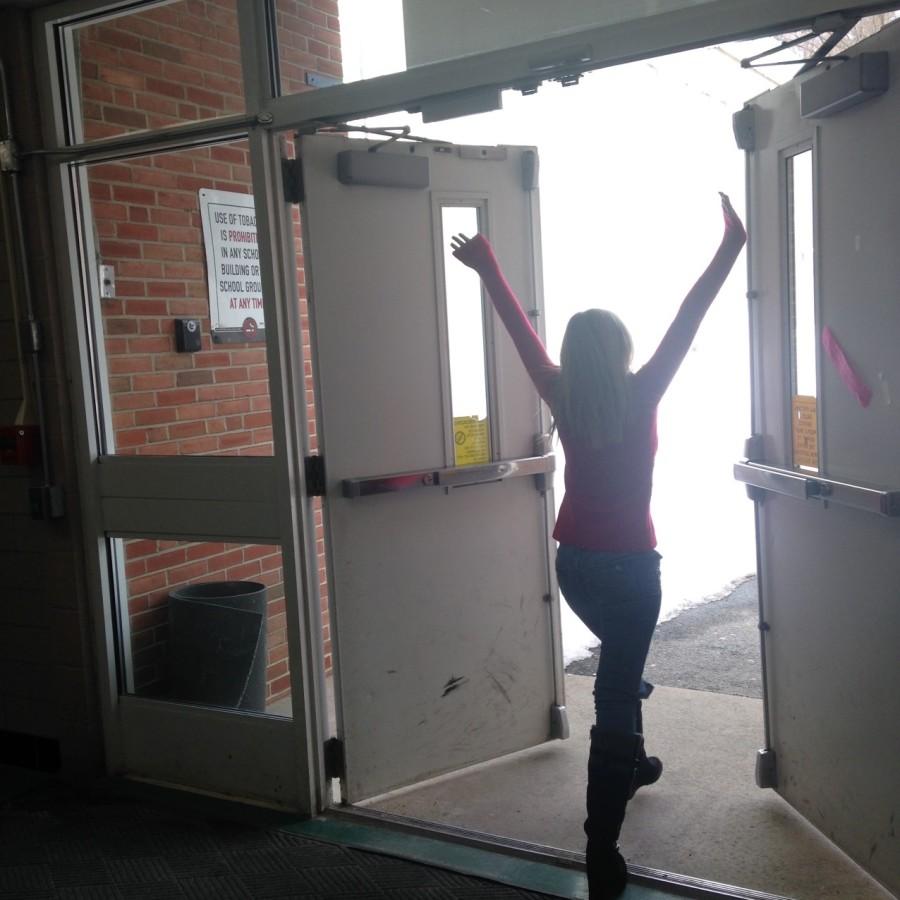Open Campus at Pentucket: the Pros and Cons
Imagine having the freedom to leave school during your study hall or lunch. You could escape cafeteria food, grab that homework assignment you forgot at home, or run an errand that your demanding schedule has no time to accommodate for. These luxuries could be possible with an open campus at Pentucket.
Students at Pentucket think an open campus policy would have its benefits. Junior James Lussier claims that he would take advantage of this rule. “I could go home and eat,” he says. This freedom could also give students the time to grab food at nearby businesses, like Nick’s Place or the West Newbury Food Mart.
Senior Maddie Torrisi says that this policy would be helpful for her. “I forget stuff [at home] all the time, so I could go and get stuff instead of calling my mom.” Students could easily drive home and back in the wake of forgetfulness, lightening the load on parents with busy schedules.
Torrisi also commented on the unfairness of senior sign-out with the new nonrotating schedule. She claims she is a fan of the static schedule, but having a study hall during third period doesn’t allow her to take advantage of sign-out. She says, “Having a study hall in the middle of the day makes me feel like I’m wasting my time.”
Jana McCoy, a Pentucket freshman, says that underclassmen would enjoy this freedom, despite the fact that they cannot drive. Students would have to travel by foot to get where they want to go. She says, “I personally wouldn’t go anywhere, but I know people who would.”
The idea of an open campus seems unimaginable to students at Pentucket, but little do they know that open campus high schools only recently became a thing of the past. According to the School Health Policies and Programs Study from 2000, a survey covering a sample of U.S. high schools showed that 65.3% of high schools and school districts had a closed campus policy. This number rose to 75.1% in 2006.
Jay Soucy, a Pentucket parent, says that his high school had an open campus. Jay graduated from Chelmsford High School in 1980. People could leave and come back as they pleased, and “it was everyone’s responsibility to get back to the school in time for class.”
An open campus policy presents concerns. Nathaniel Melone, a Pentucket junior, says that it is “an easier way to skip class.” That is why he believes that if the policy was implemented it should only apply to people who maintain good grades and can be trusted.
Lussier disagreed with Melone. He says, “I think it would be fine if it was well documented and strict and a parent signed off on it.”
Junior Rebecca Torrisi made a point about safety. She says this policy should only be applicable to people that keep a car at the school. “People shouldn’t be able to walk,” she says, “Safety is an issue because we are under the care of the school.”
Some Pentucket students did not think that an open campus policy would be a good idea. Jennie Nelson, a Pentucket junior and Merrimac resident, says, “It works for Groveland and West Newbury students, but Merrimac students live too far to get home and back in time.” She says it is “unfair for some students to leave but not everyone else.”
One of the main reasons why schools all over the nation dismissed the policy was to keep students from abusing their off-campus freedom. Authorities feared students were using their free time for alcohol and drug use.
A closed campus allows schools to have more control over students. Containing the students within the building helps administrators keep track of the students and make sure they are staying out of trouble. However, parents who want school to be their children’s baby sitter are not realistic.
There are pros and cons in an open campus policy, but if one was implemented in Pentucket, students would have to prove that they can handle this freedom by making responsible decisions. As junior Kelly Murray says, “It’s a privilege, not a right.”











